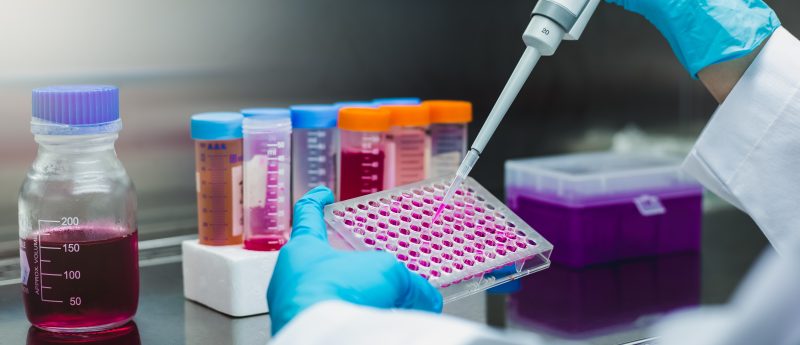Biocompatible Solid Phase Micro Extraction (BioSPME): A Tool to Overcome Matrix Effect for Multi-Class Compound Methods

It has been known for some time that the sensitivity and reproducibility of quantitative LC/MS/MS methods can be influenced by the presence of certain matrix components within a sample. These interferences impact analyte ionization through either suppression or enhancement mechanisms. Multi class, multi residue analysis requires the separation of many analytes with a broad range of chemical and physical properties (log P, pKa, size, etc.). Under these conditions it becomes increasingly difficult to separate polar and non-polar interferences from analytes of interest via reversed phase liquid chromatography, thus signifying the need for improved sample preparation.
Biocompatible solid phase micro extraction (BioSPME) is a sample preparation method that allows for the extraction of various analytes of interest from complex biological matrices without significant co-extraction of common interferences including salts, proteins, and phospholipids. Analytes can be recovered by simply desorbing within an organic solvent prior to analysis. Significant reduction in matrix interferences allows the user to focus on the separation of analytes during method development.
The focus of this study was to determine the benefit of the combination of BioSPME and LC/MS/MS for multi class, multi residue analysis from complex samples, such as biological fluids. The quality of the quantitative methodologies was evaluated by comparing robustness to traditional sample preparation techniques such as protein precipitation. Furthermore, the effect of sample matrix on the chromatographic system was also compared among all preparation techniques.
Download Poster Now
Find out more about the Life Science business of Merck KGaA and their products here.




